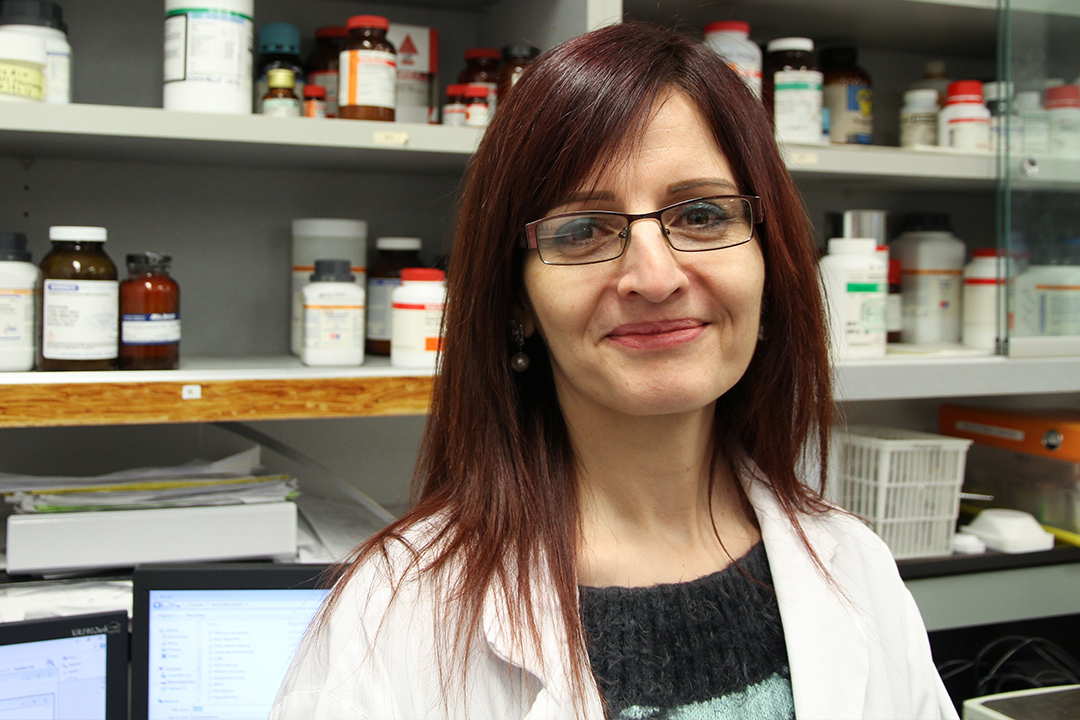
From Syria to Saskatoon
When a missile struck the oil refinery near her home in Syria, setting ablaze a raging fire only steps from her children’s bedrooms, Rana Mustafa left with her family and never looked back.
By HenryTye GlazebrookThe only possession she brought with her was her laptop. Six months later, air attacks destroyed the house and snatched away any hope of recovering her family’s remaining belongings.
“Everything was left inside—books, clothes, my kids’ paintings, everything you can imagine,” said Mustafa, a visiting professor in food science at the University of Saskatchewan’s College of Agriculture and Bioresources.
“How do you leave your home every day? I left my home exactly like that. I moved, but I thought I could come back later when the fire was gone. I have never been there since.”
Until recently, Mustafa was an associate professor and leading researcher at Al-Baath University in Homs, Syria. Her life was upended when early into the ongoing Syrian Civil War, the building she worked in was attacked and the entire institution was forced to shut down for three months. Even after it reopened, life remained violently different.
“All the time there was bombardment, explosions, kidnapping,” she said.
“You’d be as close to campus as Place Riel and you’d see and hear the guns and bombardment in the neighborhood. When I would go from one department to another, or to-and-from class, many times I would run because I was afraid. Many people were killed that way, or in explosions.”
Mustafa has been working at the U of S since February of 2016, when she was able to leave her home through joint funding from the College of Agriculture and Bioresources and the Institute of International Education’s Scholar Rescue Fund.
She came to Canada with just her two children—a daughter, 17, and 10-year-old son—leaving behind all the rest of her family members.
The process of leaving her old life behind was no simple affair, and meant juggling her extraordinary circumstances with the hidden truth that she was actively searching for an exit. If anyone had discovered her plans, it would have likely meant prison.
“I risked my life just going to-and-from the university. At every checkpoint, I had to give my ID. I just wanted to go home,” Mustafa said.
While her current role primarily involves doing research, Mustafa said she chose the U of S over other possible options because it provided her with better future opportunities to do what she loves most about her job: educating.
Even in war-torn Homs, when safety measures meant classes that normally featured more than 100 students slowly dwindled to single digit numbers, Mustafa continued pushing her pupils to learn through online lessons via Facebook.
“If you can’t come to class, you have internet. You have to learn. It will help you,” she said. “All day I was working on the internet to reply to their questions and give them their lectures, to communicate with them and encourage them. I said to them all the time, ‘Education is the key.’”
Mustafa’s scholarship ends in February, though she is seeking, with no guarantees, to have it renewed for another year. In the meantime, she is trying to apply for jobs which match her skills and could help her to stay with her kids here in Canada.
She spends her spare time getting to know her colleagues, interacting with people from other cultures in the city and volunteering with community organizations such as the Saskatoon Open Door Society. On some days Mustafa will take her family to cultural gatherings, where her son will lift spirits by playing the oud—a large, guitar-like instrument with a body shaped like a chestnut cracked in two—while she sings along beside him, the two of them helping to build community in their new home.
“I had no choice. I want to work, and I want my kids to live. I see that there is no future in Syria for us,” she said. “I could have died there, but I’d rather die some other way.”

